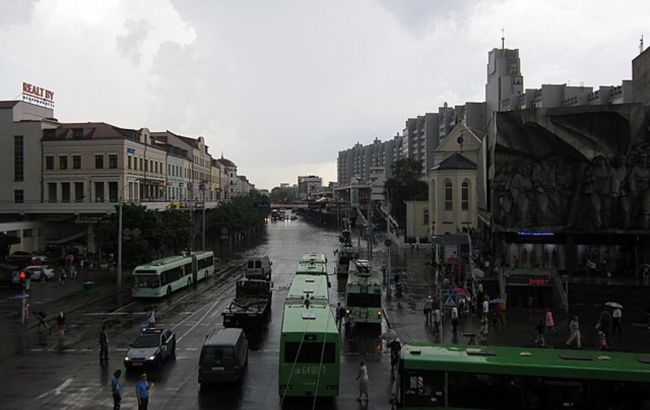Belarus on brink of default: Rising deficit and no Russian aid, Ukraine's Foreign Intelligence says
 Photo: Belarus sliding into an economic abyss (wikimedia.org)
Photo: Belarus sliding into an economic abyss (wikimedia.org)
In the first half of 2025, the Belarusian economy effectively lost momentum. GDP growth slowed to 2.1% - that's 2.9 percentage points less than during the same period in 2024, the Foreign Intelligence Service of Ukraine reports.
Inflation reached 7.3%, and the risks of Belarusian ruble devaluation are rising.
The main reason for the downturn is cited as a collapse in agriculture, which contracted by 8.1% year-over-year. An additional blow came from a sharp decline in exports to the key market - Russia.
In the first half of the year, shipments of consumer goods, equipment, and lumber to Russia fell by more than 70%.
From January to April, Belarus's foreign trade deficit reached $856 million: exports dropped by 0.3%, while imports, on the contrary, grew by 4.7%.
Industrial production showed only symbolic growth, 0.3%, driven mainly by domestic demand.
The situation is further complicated by Russia's economic stagnation. In the first quarter of 2025, Russia's GDP shrank by 4% year-over-year.
Minsk without support
This limits financial assistance for Minsk, reduces demand for goods, and slows down investment.
If the trend continues, the Belarusian ruble may lose significant value, leading to a decrease in purchasing power and destabilization of the social situation.
As noted by Ukraine's Foreign Intelligence Service, Belarus is expected to maintain sluggish growth through the end of 2025.
However, in 2026–2027, a worsening of the economic crisis is anticipated, due to declining household incomes and the country's continued pull into Russia's stagflationary orbit.
Meanwhile, sanctions have disrupted traditional supply routes to Russia's Kaliningrad. While maritime shipping has increased, logistics are collapsing.
After sanctions were imposed in 2022, Russia significantly increased its spending on freight transit to the Kaliningrad region - an enclave without a land connection to the rest of the country.
Previously, most deliveries went through Lithuania, but now that route is heavily restricted due to quotas and sanctions.

